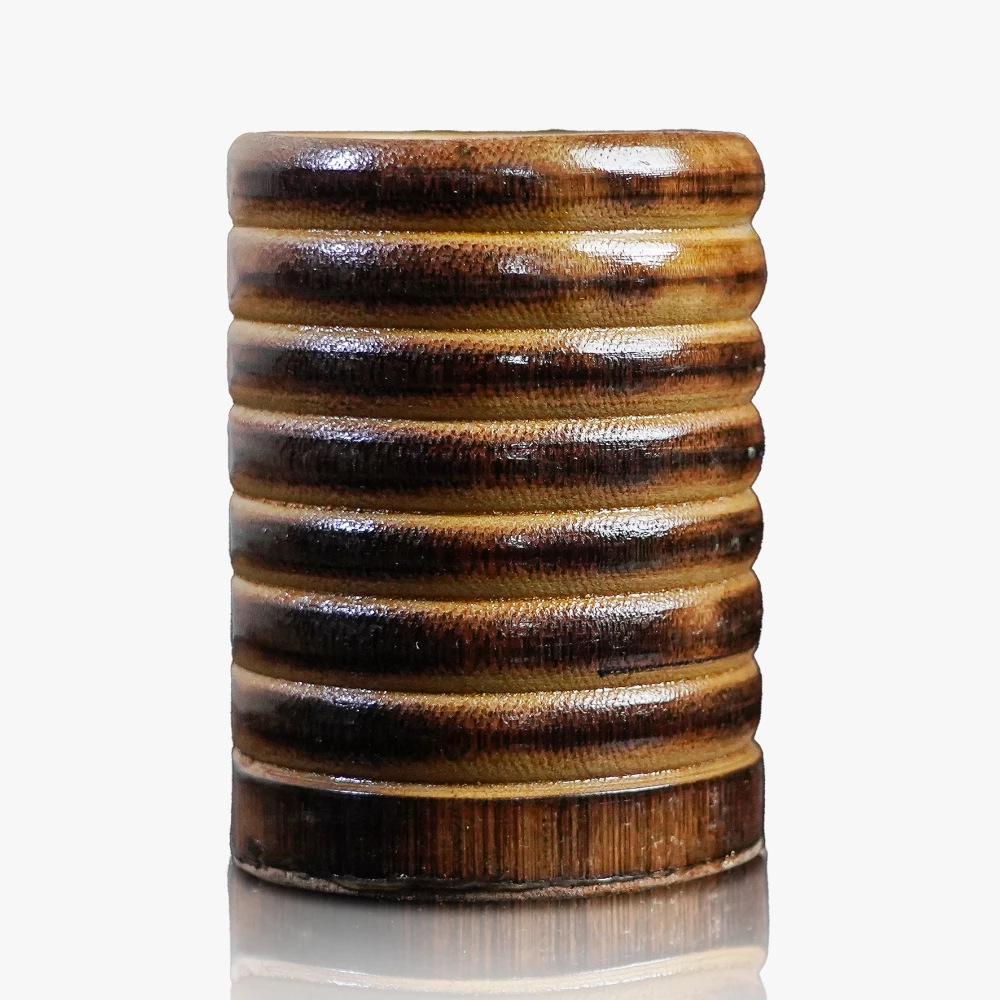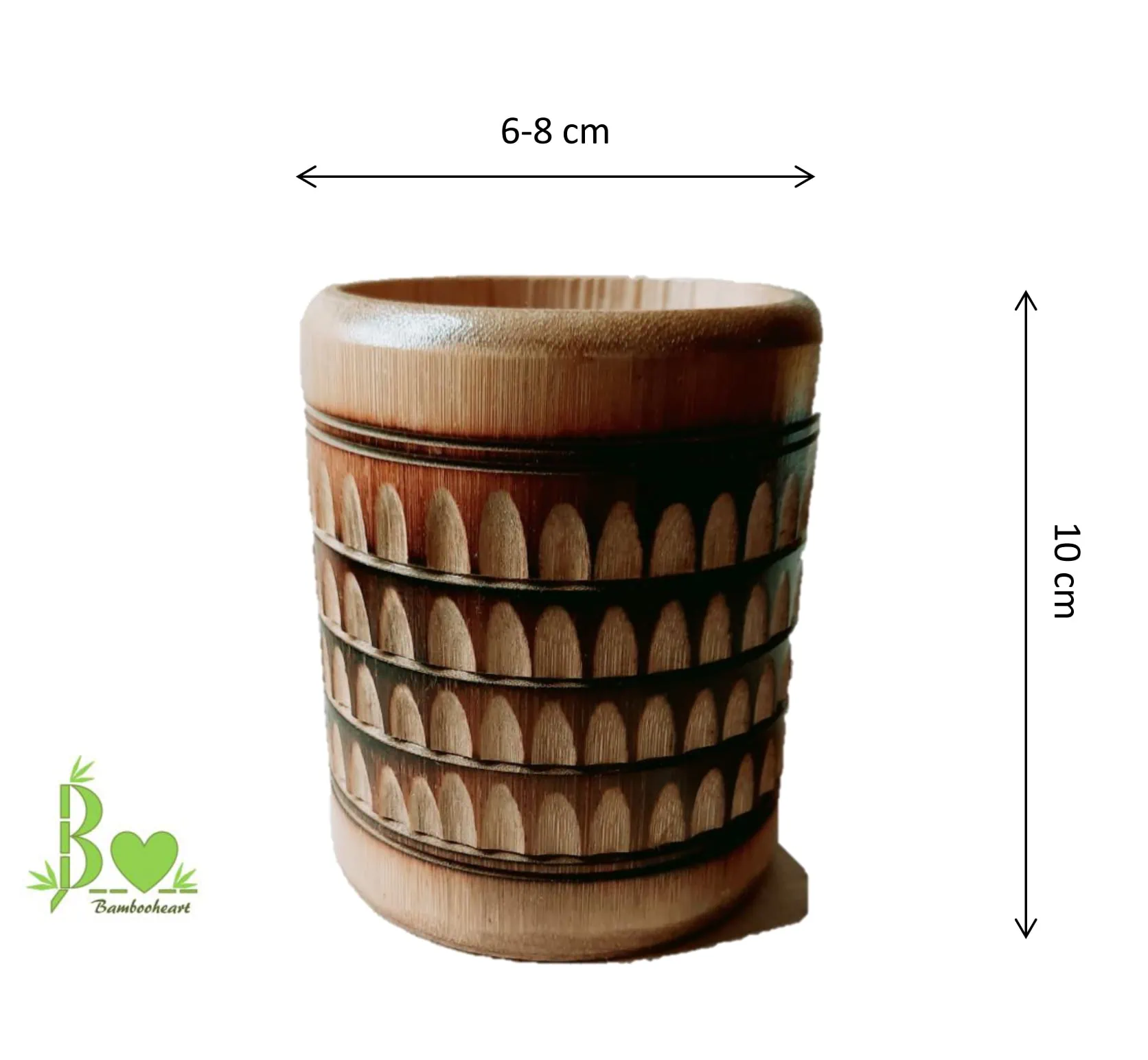Bamboo Pen Stand- brown
₹139.0
– Made up of bamboo
– Deep Brown in color
– Stylish and convenient
– A bamboo chopping tool is used to cut the bamboo and separate it into two pieces
– By fastening a flat, thin hardwood or plywood sheet, the base and side portions of the pen holder are added
– This piece has an aboriginal design on it and gives a rustic look to the place
– It’s round in structure and has a seamless look
– Eco Friendly and sustainable
- Description
- Additional information
- Reviews (0)
- Q & A
- Sustainability Remark
- More Offers
- Store Policies
- Inquiries
| Color | Brown |
|---|---|
| Material | Bamboo |
You must be logged in to post a review.
Q & A
Bamboo is often considered an eco-friendly material due to its rapid growth, renewability, and various environmental benefits. Here are some aspects highlighting the sustainability of bamboo as an eco-friendly product:
Renewable resource: Bamboo is one of the fastest-growing plants on Earth, with some species growing up to 91 centimeters (36 inches) in just 24 hours. This rapid growth makes bamboo highly renewable, as it can be harvested and regrown within a short span of time.
Low environmental impact: Bamboo has a minimal environmental impact compared to other materials commonly used in various industries. It requires no pesticides or fertilizers to grow, reducing the potential for chemical pollution. Additionally, bamboo cultivation requires less water compared to other crops, making it a more sustainable choice.
Carbon sequestration: Bamboo plants have a remarkable capacity to sequester carbon dioxide (CO2) from the atmosphere. They can absorb up to four times more CO2 compared to other trees, contributing to the mitigation of greenhouse gas emissions and combating climate change.
Soil health and erosion control: Bamboo has an extensive root system that helps prevent soil erosion. The roots bind the soil together, minimizing the risk of landslides and preserving the quality of nearby water bodies. Furthermore, bamboo has a symbiotic relationship with beneficial bacteria, enriching the soil and enhancing its fertility.
Versatile applications: Bamboo can be used for a wide range of products, including construction materials, furniture, textiles, paper, and even as a renewable energy source. Its versatility allows for the replacement of less sustainable materials, reducing the overall environmental impact of various industries.
Despite its numerous sustainable qualities, it's essential to consider the entire life cycle of bamboo products. The manufacturing processes, transportation, and end-of-life disposal can still impact the sustainability of bamboo-based products. For example, if bamboo is shipped long distances, it can contribute to carbon emissions. To ensure the sustainability of bamboo products, it's important to choose responsibly sourced bamboo, opt for local or certified products, and properly dispose of or recycle them when they reach the end of their lifespan.
Overall, bamboo has significant potential as an eco-friendly material, offering various environmental benefits and sustainable alternatives to traditional materials.
General Inquiries
There are no inquiries yet.



















Reviews
There are no reviews yet.